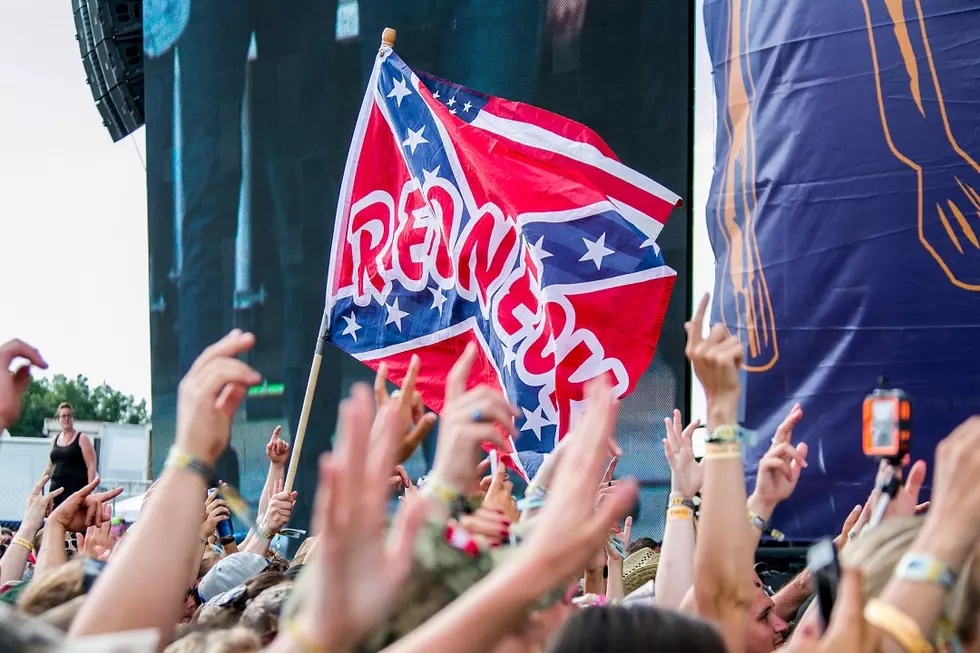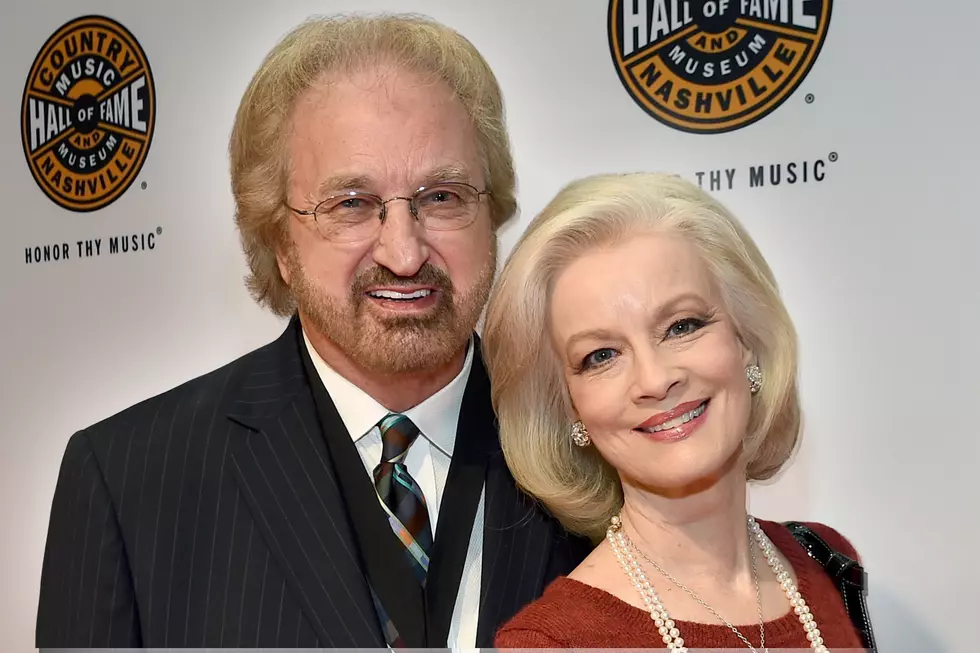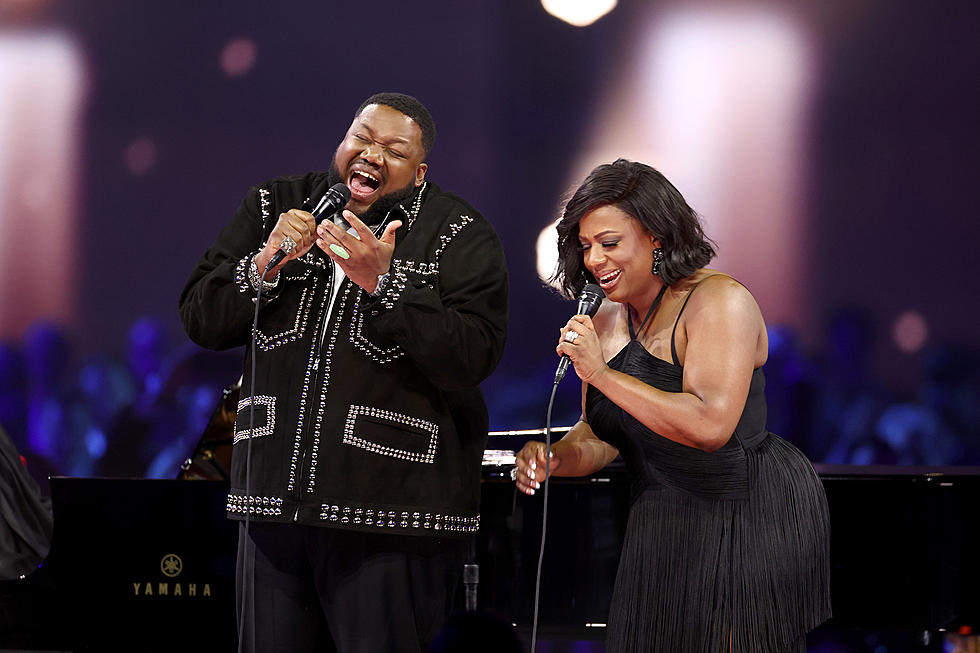
Now That NASCAR Has Banned Confederate Flags, Will Country Music Be Next?
On June 10, NASCAR announced its decision to ban the Confederate flag from all of the stock-car league's races and properties, effective immediately, in light of recent protests over and conversations around racial inequality following the killings of George Floyd, Breonna Taylor, Ahmaud Arbery and other black men and women.
"The presence of the Confederate flag at NASCAR events runs contrary to our commitment to providing a welcoming and inclusive environment for all fans, our competitors, and our industry," reads the organization's statement on the matter, released after driver Bubba Wallace, the first full-time black driver in the NASCAR Cup Series since 1971, called for a banning of Confederate flags at races.
Within minutes of NASCAR's announcement, social media users — including a number of media members — began asking the same question: Will country music be next?
Confederate flags are an all-too-familiar sight at country festivals, concerts and pre-show tailgates — to say nothing of its past use by artists, including on merch, in their music and in band names — thanks to the genre's roots in the southern United States, the area that seceded from the Union during the Civil War. The four-year war between the U.S.' northern states and the newly formed Confederate States of America centered around slavery: U.S. President Abraham Lincoln and his Republican party supporting banning slavery in U.S. territories, and the eventual abolition of slavery in the States, while Southern lawmakers believed doing so was a violation of their constitutional rights.
While some who display the Confederate flag say they do so as a symbol of pride in their heritage, not a show of prejudice and hate, the flag was never actually the official flag of the Confederate States of America; rather it was the battle flag of Gen. Robert E. Lee’s Army of Northern Virginia. Further, country music historian, journalist and author Robert K. Oermann told Taste of Country in 2015, the Confederate flag did not take on its current mantle as a symbol of Southern pride in country music until the 1960s, after the segregationist Dixiecrat party had employed it as a symbol in the 1950s.
"I believe it became a response to the death of segregation. That's when these various states began to display the flag, and it started being much more visible," Oermann explains. "So [some of] these country stars, that's the way they grew up. They grew up thinking, 'Oh, it's just a recognition of my ancestors, and I want to honor my ancestors.' Well, you know, I'm a German American, and I don't display the swastika.
"I don't think they mean to offend, but they do. They also don't see it a symbol of treason, which is what it was, originally. They don't think of it as offensive. They think of it like the apologists would say, 'I'm honoring my heritage,'" he continues. "They've obviously never put themselves in the shoes of someone who's black ... They don't think of what the symbol means. They only think of honoring some ancestors or some heritage, without going any deeper than that."
As country music continues to grow in popularity, however, its fan base, and even its pool of artists, songwriters, musicians and industry members, is expanding well beyond the people who grew up with that mindset. A February 2019 Country Music Association study of the country music audience shows that at least 46 percent of listeners in every part of the United States listen to country music at least once per month. Over a five-year period, country music listenership among black listeners grew 55 percent; during the same period, among Hispanic people, listenership grew 15 percent.
Today's country music listeners are largely employed full-time (51 percent), with many working white-collar jobs (49 percent of those employed); 35 percent of them hold college degrees, and in various ways, they're tech savvy. The stereotype of country music listeners as rednecks and hillbillies is outdated and inaccurate; in fact, it has been for decades.
To keep allowing the Confederate flag to be associated with country music alienates fans (and, likely, artists) of color. Rachel Berry, a 28-year-old from New Jersey whose Instagram post about being a black country music fan recently went viral, admits to "wishing I was invisible so I could walk through the crowd without being seen or noticed" when she sees Confederate flags at concerts.
"Seeing those flags flying ... it's a little frightening, just because of what the Confederate flag means," Berry tells Good Morning America. On Twitter, she shared a comment from a fellow black country music fan who noticed Confederate flags at a concert tailgate in her hometown. The unnamed fan and their friend didn't say anything to those nearby, but still returned to find their car tires slashed and surrounded with glass bottles.
The country music community's events aren't governed by an overarching organization as with NASCAR, so bans would need to come either from the venues, shows' bookers and promoters or the artists themselves. No large-scale announcements regarding Confederate flags have been made by any of the aforementioned groups, though with the novel coronavirus pandemic keeping most artists at home and forcing the postponement or cancelation of many festivals, such bans could be put into place once live music resumes.
More From Taste of Country


![Tim McGraw Brings Famous Friend Onstage During Nashville Show [Pictures, Setlist + Video]](http://townsquare.media/site/204/files/2024/04/attachment-Tim-McGraw.jpg?w=980&q=75)




![Fans Are Loving Keith Urban +Lainey Wilson’s Collab ‘Go Home W U’ [Listen]](http://townsquare.media/site/204/files/2024/04/attachment-Keith-Urban-Lainey-Wilson.jpg?w=980&q=75)

